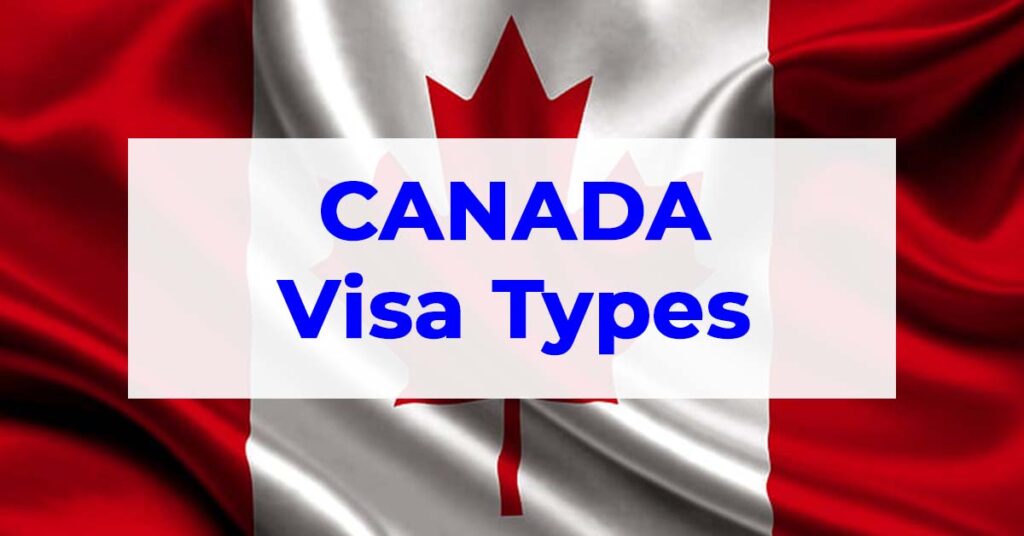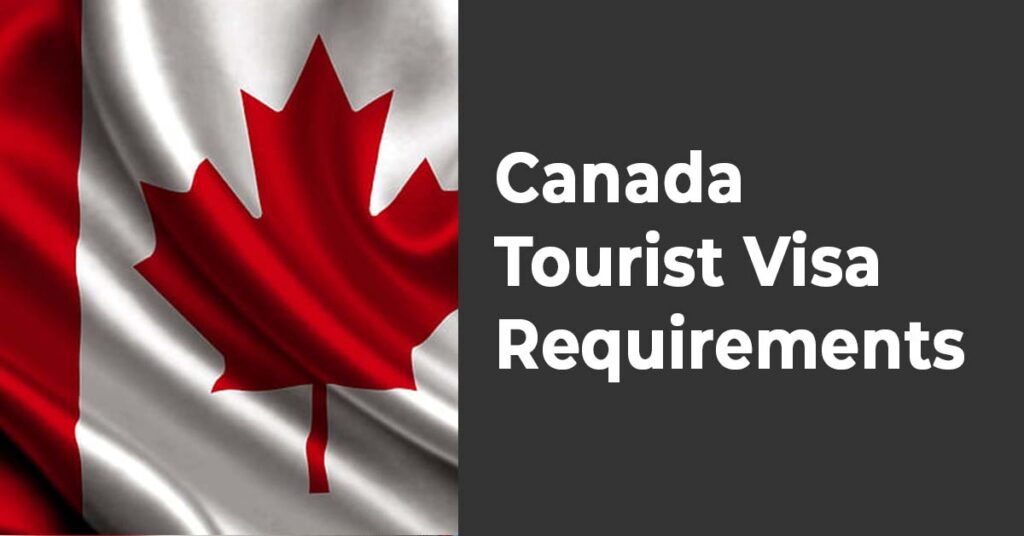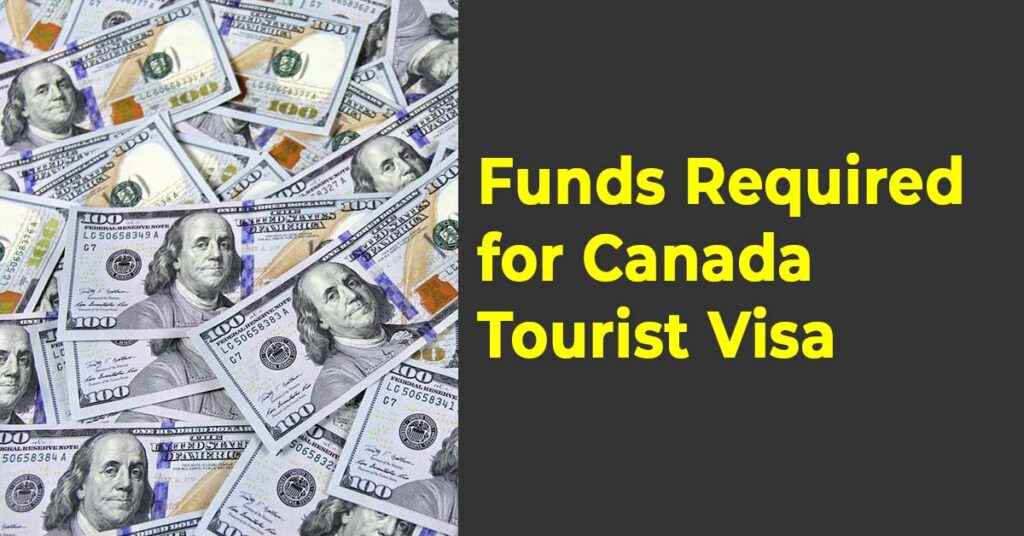Types of Canada Visas are diverse, catering to various purposes of visit. It’s essential to understand the right visa type for a successful application. Here’s an overview of the primary categories of Canadian visas:
Visitor Visas (Temporary Resident Visa - TRV)
Tourist Visa:
This visa is for leisure travelers wanting to explore Canada’s vast landscapes, from the Rocky Mountains to the bustling cities like Toronto. Ideal for vacationers, it allows you to experience Canada’s rich cultural festivals, natural beauty, and historical sites. The visa typically allows a six-month stay, but the exact duration is at the discretion of the immigration officer. Applicants must show they have sufficient funds for their stay, a return ticket, and no intention of working or studying. This visa is crucial for those who want to experience Canada’s diverse cultures and breathtaking scenery.
Business Visitor Visa:
Aimed at professionals visiting Canada for business activities like meetings, conferences, or negotiations, this visa doesn’t permit direct entry into the Canadian labor market. It’s perfect for expanding business networks and exploring Canadian markets. Applicants need to prove their main source of income and business is outside Canada. This visa is essential for global business professionals looking to connect with Canadian companies.
Super Visa:
Unique to Canada, this visa is for parents or grandparents of Canadian citizens or permanent residents. It stands out for its long validity of up to 10 years and allows for multiple entries for a stay of up to two years at a time. It’s ideal for families wishing to spend more time together without the need for frequent renewals. Applicants must have medical insurance from a Canadian insurance company and their Canadian relatives need to meet minimum income thresholds.
Student Visa (Study Permit)
Study Permit:
This is more than just a visa; it’s a gateway for international students to access Canada’s world-renowned education system. With this permit, students can attend any Designated Learning Institution (DLI). It allows you to work part-time during school terms and full-time during scheduled breaks, which is great for gaining work experience and managing living expenses. To qualify, you need acceptance from a DLI, proof of funds, and a clean background. It’s a pathway not just to education but also to potential permanent residency, as Canada values international graduates.
Also read
Work Visas and Permits
Temporary Work Permits:
These are for individuals who have a job offer in Canada and plan to work for a limited period. They’re crucial for the Canadian economy, allowing it to fill skill gaps with foreign expertise. Applicants need a valid job offer and, in most cases, a positive LMIA, proving that no Canadian worker is available for the role. This visa is a stepping stone for those seeking to gain international work experience.
International Mobility Program:
This program benefits both Canadian employers and foreign workers. It allows Canadian companies to hire foreign talent without the need for an LMIA. This program is designed to advance Canada’s broad economic and cultural national interest, rather than filling particular jobs. Workers under this program contribute significantly to Canada’s diversity and innovation.
LMIA Work Permits:
Essential for protecting the Canadian labor market, these permits ensure that hiring a foreign worker will not negatively affect Canadian job seekers. The LMIA process assesses the impact of hiring a foreign worker. If positive, it leads to a work permit, allowing international talent to fill specific roles in Canada.
Working Holiday Visa (International Experience Canada - IEC):
This program offers a unique opportunity for youth from participating countries to experience living and working in Canada. It’s ideal for those seeking adventure and cultural exchange. The visa allows you to work for any employer in Canada and is a fantastic way to gain international work experience while exploring the Canadian lifestyle.
Post-Graduation Work Permit:
Tailored for international students who have completed their studies in Canada. This permit allows graduates to work in Canada for a duration equal to their study period, up to a maximum of three years. It’s a critical step for students looking to transition to skilled work and permanent residency in Canada.
Permanent Resident Visas
Express Entry:
This system is Canada’s primary way of managing skilled worker applications for permanent residence. It’s a competitive point-based system evaluating factors like age, education, work experience, and language proficiency. Ideal for skilled professionals seeking a new life in Canada, it’s a pathway to not only living but thriving in a multicultural society.
Provincial Nominee Program (PNP):
This program allows Canadian provinces and territories to nominate individuals who wish to immigrate to Canada and who are interested in settling in a particular province. Each province has its criteria, targeting specific groups like skilled workers, students, or businesspeople. PNP is a great option for those who have a strong connection to a specific Canadian region.
Family Sponsorship Program:
A heartwarming opportunity for Canadian citizens or permanent residents to reunite with family members. This program allows you to sponsor your spouse, children, parents, and grandparents, providing them with permanent residency. It’s a reflection of Canada’s commitment to keeping families together.
Canadian Experience Class:
Tailored for individuals with skilled work experience in Canada. It’s part of the Express Entry system and is perfect for those who have already adapted to the Canadian way of life and labor market. This class recognizes the deep connection candidates have formed with Canada and provides a pathway to permanent residence.
Federal Skilled Worker Program & Federal Skilled Trades Program:
These programs target skilled workers and tradespeople worldwide, assessing them on factors like language ability, education, and work experience. They are gateways for skilled professionals and tradespeople to contribute to Canada’s thriving economy.
Refugee and Asylum Class Visas
Refugee and Asylum Visas
These are for individuals fleeing persecution, conflict, or human rights violations. Canada’s commitment to humanitarian assistance is evident in its refugee program, offering protection to those in dire need. It’s a lifeline for those seeking safety and a new start in a welcoming country.
Other Special Visas
Caregiver Visa:
This visa allows individuals to come to Canada to provide care for seniors, children, or people with certified medical needs. It’s an opportunity for caregivers to contribute to Canadian households in meaningful ways while also providing a pathway to permanent residency.
Start-up Visa:
Designed for entrepreneurs with innovative business ideas. Applicants must secure funding from a designated Canadian investment organization. It’s a unique opportunity for business-minded individuals to bring new ideas to the Canadian market.
Transit Visas
Transit Visa:
Required for travelers passing through Canada for less than 48 hours en route to another destination. It’s a straightforward yet essential part of travel logistics for those transiting through Canada.
End Note:
This comprehensive guide offers detailed insights into each visa category, helping prospective applicants understand their options for visiting, working, studying, or immigrating to Canada. Remember, specific requirements can vary, so it’s always best to consult the official Canadian Immigration website for the most current information. Visit IRCC official website : IRCC Canada



